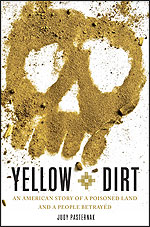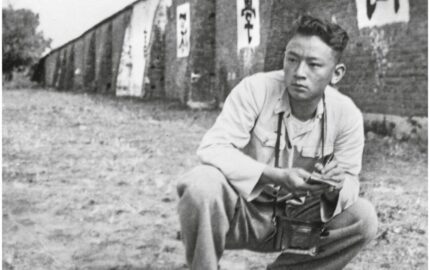
The Beat Goes On - Its Rhythm Changes
Beats form the backbone of a newsroom, so what happens when resources shrink, new voices emerge and platforms multiply? Which topics stick around? What new beats emerge? As Twitter cranks up the demand for constant interaction, how do beat reporters handle the daily grind? How do journalists connect with news consumers in a time of information overload? As e-book reading surges, is self-publishing the way to go? Dig in to these stories—and listen to Gabrielle Goodman perform our cover’s song that she wrote.
Judy Pasternak, a former reporter at the Los Angeles Times, drew on expertise she developed covering the environment, science and other beats to write her first book. “Yellow Dirt: An American Story of a Poisoned Land and a People Betrayed,” published this past fall by the Free Press, builds on her series in the Times which focused on private companies that mined uranium on Navajo land for decades and failed to protect their workers or the environment.
At the time of the series, Pasternak was a member of the paper’s Washington-based national investigative team. The series and the book represent what Pasternak called a “harmonic convergence” of subjects, including ethnic and race relations, she covered during her 24 years at the Times.
In her book’s acknowledgements Pasternak credits the essential role that a newspaper can play in enabling a reporter to become an author. “Without the Los Angeles Times, there would have been no book,” she writes. Now, the Times, like so many other papers, has had to cut back on its ambitions to take on sprawling, complex stories at the same time that thin staffing and increased workloads make it more difficult for reporters to transform daily assignments into books.
RELATED ARTICLE
“It's Scary Out There in Reporting Land”
- David Cay JohnstonTwo years ago the journalism department at Boston University’s College of Communication convened a conference called “The Nonfiction Book as the Last Best Home for Journalism.” Ron Suskind, who had left his job as senior national affairs writer for The Wall Street Journal to pursue book-writing full time, identified the challenge of building a “strategic model” so that journalists who develop deep expertise on their beats will have the resources to sustain themselves while they write books. “The audience is hungry for such stories,” Suskind said. “But who will be paid to tell them and by whom?”
As book publishers in an era of e-books face their own set of economic challenges—and smaller advances are being paid to reporters-turned-authors—Suskind’s question takes on a new level of urgency.
At the time of the series, Pasternak was a member of the paper’s Washington-based national investigative team. The series and the book represent what Pasternak called a “harmonic convergence” of subjects, including ethnic and race relations, she covered during her 24 years at the Times.
In her book’s acknowledgements Pasternak credits the essential role that a newspaper can play in enabling a reporter to become an author. “Without the Los Angeles Times, there would have been no book,” she writes. Now, the Times, like so many other papers, has had to cut back on its ambitions to take on sprawling, complex stories at the same time that thin staffing and increased workloads make it more difficult for reporters to transform daily assignments into books.
RELATED ARTICLE
“It's Scary Out There in Reporting Land”
- David Cay JohnstonTwo years ago the journalism department at Boston University’s College of Communication convened a conference called “The Nonfiction Book as the Last Best Home for Journalism.” Ron Suskind, who had left his job as senior national affairs writer for The Wall Street Journal to pursue book-writing full time, identified the challenge of building a “strategic model” so that journalists who develop deep expertise on their beats will have the resources to sustain themselves while they write books. “The audience is hungry for such stories,” Suskind said. “But who will be paid to tell them and by whom?”
As book publishers in an era of e-books face their own set of economic challenges—and smaller advances are being paid to reporters-turned-authors—Suskind’s question takes on a new level of urgency.



